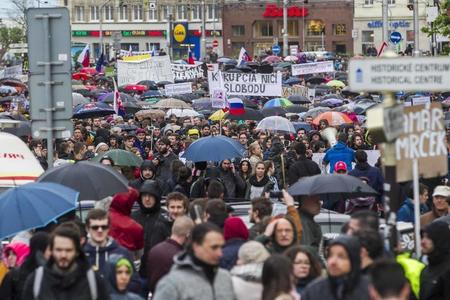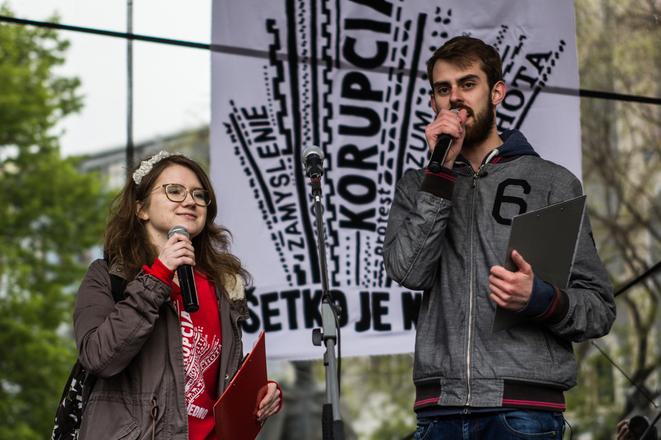Secondary school students Dávid Straka and Karolína Farská, who organised the march against corruption, attended by several thousands of people in mid-April, are preparing a second event to take place on June 5.
“Our concerns that the government is arrogant towards the people and that it ignores their requirements have been confirmed,” said Straka, as quoted by the Sme daily.
As well as Bratislava, the protest marches will take place in Košice, Prešov and Žilina. More details have not been revealed yet, Sme wrote.
Straka and Farská announced the plans to organise the second protest two weeks after the first one, claiming that the deadline they gave to the government to meet their demands has expired. They were calling for Interior Minister Robert Kaliňák (Smer), Police Corps President Tibor Gašpar and Special Prosecutor Dušan Kováčik to leave their posts.
Nobody has contacted the organisers or met with them since the first march.
“We expected at least an explanation from them as to why these people are not responsible for Slovakia's failure to deal with corruption,” Straka said, as quoted by Sme, adding they have received none.
Straka repeated they are independent and no political party stands behind them.

In addition to the march, the students will also collect signatures for the petition they want to hand in to parliament. They call on MPs to express no confidence in Kaliňák, the exchange Police Corps president and the special prosecutor, particularly because of the slow investigation into the Gorilla and Bašternák corruption scandals.
Kaliňák said on May 2, that he does not see any reason for his departure as he has more fans than critics.
“Everybody receives a certain number of votes in the elections and those that you don’t receive are against you,” the interior minister said, as quoted by Sme. “This is part of democracy.”
The first protest in the capital was evaluated as a success. In order to continue this trend, it is now necessary to move to other cities and organise further civic activities, political scientist Grigorij Mesežnikov, president of the Institute for Public Affairs think tank, told Sme.



 Organisers of the first student protest, Karolína Farská and Dávid Straka. (source: SME)
Organisers of the first student protest, Karolína Farská and Dávid Straka. (source: SME)